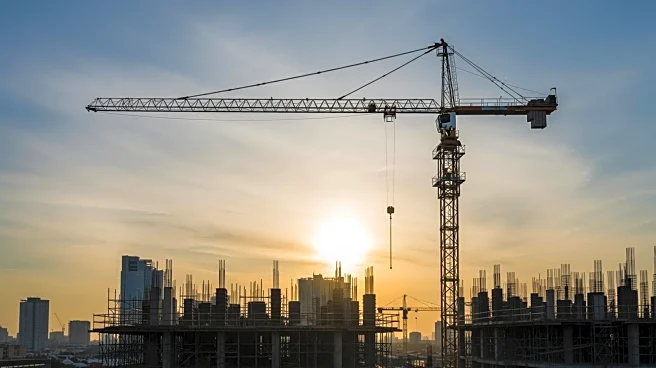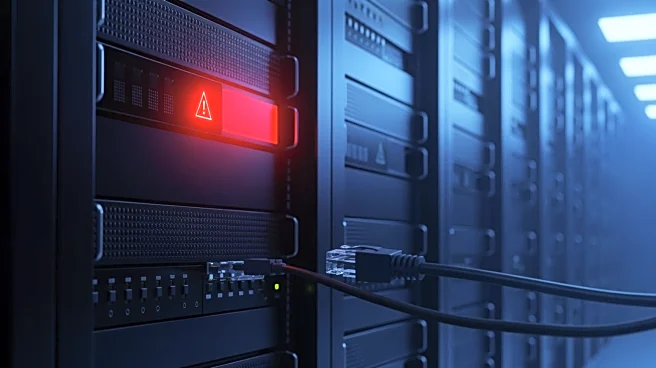What's Happening?
The construction industry is experiencing increased costs and a slowdown in deal flow, according to Anirban Basu, chief economist at Associated Builders and Contractors. During a recent webinar, Basu highlighted
that firms involved in data center construction report a backlog of about 12 months, but high input and labor costs are affecting contractors across other sectors. Financing challenges and market saturation in cities like Nashville, Tampa, Austin, and Denver are contributing to the cooling conditions in commercial construction. Additionally, leasing for distribution and warehouse space has decreased, partly due to tariffs impacting imports. Manufacturing construction is also losing momentum due to tariffs and political uncertainty affecting reshoring decisions.
Why It's Important?
The current economic conditions pose significant challenges for the construction industry, potentially affecting profitability and delaying new projects. High interest rates and increased delivery costs are key issues for contractors, particularly those not involved in data center projects. The slowdown in leasing and manufacturing construction could impact job creation and economic growth in affected regions. Publicly funded infrastructure projects have provided some relief, but with federal funding set to expire in 2026, the industry may face further difficulties. The situation underscores the need for strategic planning and adaptation to changing economic conditions.
What's Next?
If borrowing costs decrease and federal infrastructure spending is renewed, construction starts may increase by late 2026 or 2027. However, the continuation of the data center construction boom is contingent on the returns from artificial intelligence investments. Contractors may need to explore alternative financing options and adapt to shifting market demands. The expiration of federal funding under the Infrastructure Investment and Jobs Act in 2026 could lead to reduced public project opportunities, necessitating adjustments in business strategies for infrastructure contractors.
Beyond the Headlines
The construction industry's challenges reflect broader economic trends, including the impact of tariffs and political uncertainty on investment decisions. The cooling of commercial activity and manufacturing construction highlights the interconnectedness of global trade policies and domestic economic health. As the industry navigates these complexities, ethical considerations around labor practices and environmental sustainability may become increasingly important.









